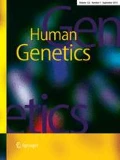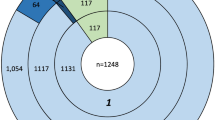Abstract
The unique appearance of Scottish Fold cats is caused by a single gene variant in TRPV4, which impacts the development of cartilage. This results in the ears folding forward and variable effects on articular cartilage and bone. While some find this appearance desirable, early work demonstrated that homozygous cats with two copies of this variant develop severe radiographic consequences. Subsequent breeding programs have mated heterozygous cats with straight-eared cats to ensure an equal mix of heterozygous (fold) and wild-type (nonfolded) offspring, in the hope of raising healthy cats. More recent radiological surveys suggest that these heterozygous cats may also have medical problems consisting of deformed distal extremities in the worst cases and accelerated onset of osteoarthritis. However, these previous studies were undermined by selection biases, lack of controls, unblinded assessment and lack of known genotypes. Our aim was to determine if heterozygous cats exhibit radiological abnormalities when controlling for these limitations. Specifically, DNA and radiographs were acquired for 22 Scottish Fold cats. Four reviewers, blinded to the ear phenotype, assessed the lateral radiographs. Genotyping showed that all 10 folded-ear cats were heterozygous, and none of the straight-ear cats (n = 12) had the abnormal TRPV4 variant. Although each reviewer, on average, gave a numerically worse ‘severity score’ to folded-ear cats relative to straight-ear cats, the images in heterozygous cats showed much milder radiological signs than previously published. This study provides additional information to be considered in the complicated debate as to whether cats with the TRPV4 variant should be bred for folded ears given the potential comorbidities.



Similar content being viewed by others
Availability of data and material
The digital images are provided in raw DICOM format at https://osf.io/n59eh/.
References
Adams GT, Snieder H, McKie VC, Clair B, Brambilla D, Adams RJ, Kutlar F, Kutlar A (2003) Genetic risk factors for cerebrovascular disease in children with sickle cell disease: design of a case-control association study and genome wide screen. BMC Med Genet 4:6. https://doi.org/10.1186/1471-2350-4-6
Cambria E, Heusser S, Scheuren AC, Tam WK, Karol AA, Hitzl W, Leung VY, Müller R, Ferguson SJ, Wuertz-Kozak K (2021) RESEARCH ARTICLETRPV4 mediates cell damage induced by hyperphysiologicalcompression and regulates COX2/PGE2 in intervertebral discs. JOR Spine. https://doi.org/10.1002/jsp2.1149
Chang J, Jung J, Oh S, Lee S, Kim G, Kim H, Kweon O, Yoon J, Choi M (2007) Osteochondrodysplasia in Three Scottish Fold Cats. J Vet Sci 8(3):307–309. https://doi.org/10.4142/jvs.2007.8.3.307
Fournier PF (2002) The Lorenz theory of beauty. J Cosmet Dermatol 1(3):131–136. https://doi.org/10.1046/j.1473-2165.2002.00038.x
Fujiwara-Igarashi A, Igarashi H, Hasegawa D, Fujita M (2015) Efficacy and complications of palliative irradiation in Three Scottish Fold Cats with Osteochondrodysplasia. J Vet Intern Med 29(6):1643–1647. https://doi.org/10.1111/jvim.13614
Gandolfi B, Alamri S, Darby WG, Adhikari B, Lattimer JC, Malik R, Wade CM, Lyons LA, Cheng J, Bateman JF, McIntyre P, Lamandé SR, Haase B (2016) A Dominant TRPV4 Variant Underlies Osteochondrodysplasia in Scottish Fold Cats. Osteoarthr Cartil OARS Osteoarthr Res Soc 24(8):1441–1450. https://doi.org/10.1016/j.joca.2016.03.019
Hintze J, Nelson R (1998) Violin plots: a box plot-density trace synergism. Am Stat 52(2):181–184. https://doi.org/10.2307/2685478
Jackson OF (1975) Congenital bone lesions in cats with folded-ears. Bull Fel Advis Bur 14:2–4
Lamandé SR, Yuan Y, Gresshoff IL, Rowley L, Belluoccio D, Kaluarachchi K, Little CB, Botzenhart E, Zerres K, Amor DJ, Cole WG, Savarirayan R, McIntyre P, Bateman JF (2011) Mutations in TRPV4 cause an inherited arthropathy of hands and feet. Nat Genet 43(11):1142–1146. https://doi.org/10.1038/ng.945
Lyons LA (2010) Feline genetics: clinical applications and genetic testing. Top Companion Anim Med 25(4):203–212. https://doi.org/10.1053/j.tcam.2010.09.002
Maksymowych WP, Reeve JP, Reveille JD, Akey JM, Buenviaje H, O’Brien L, Peloso PM, Thomson GT, Jin L, Russell AS (2003) High-throughput single-nucleotide polymorphism analysis of the IL1RN locus in patients with ankylosing spondylitis by matrix-assisted laser desorption ionization-time-of-flight mass spectrometry. Arthritis Rheum 48(7):2011–2018. https://doi.org/10.1002/art.11037
Malik R (2001) Genetic diseases of cats. J Feline Med Surg 3(2):109–113. https://doi.org/10.1053/jfms.2001.0121
Malik R, Allan GS, Howlett CR, Thompson DE, James F, McWhirter C, Kendall K (1999) Osteochondrodysplasia in Scottish Fold Cats. Aust Vet J 77(2):85–92. https://doi.org/10.1111/j.1751-0813.1999.tb11672.x
Menotti-Raymond M, David VA, Pflueger SM, Lindblad-Toh K, Wade CM, O’Brien SJ, Johnson WE (2008) Patterns of molecular genetic variation among cat breeds. Genomics 1(1):1–11. https://doi.org/10.1016/j.ygeno.2007.08.008
Nakajo T, Fujita Y, Ichinohe T, Maruo T (2020) Combined surgical, radiation, and medical therapies for Osteochondrodysplasia in a Scottish Fold Cat. J Am Anim Hosp Assoc 56(3):175. https://doi.org/10.5326/JAAHA-MS-6980
O’Conor CJ, Ramalingam S, Zelenski NA, Benefield HC, Rigo I, Little D et al (2016) Cartilage-specific knockout of the mechanosensory ion channel TRPV4 decreases age related osteoarthritis. Sci Rep 6:29053–29063. https://doi.org/10.1038/srep29053
Rorden C, Karnath HO, Bonilha L (2007) Improving lesion-symptom mapping. J Cogn Neurosci 19(7):1081–1088. https://doi.org/10.1162/jocn.2007.19.7.1081
Seneta E, Phipps MC (2001) On the comparison of two observed frequencies. Biom J 43(1):23–43. https://doi.org/10.1002/1521-4036(200102)43:1%3c23::AID-BIMJ23%3e3.0.CO;2-8
Shaffer LG, Ramirez CJ, Sundin K, Connell LB, Ballif BC (2015) Genetic screening and mutation identification in a rare canine breed, the Drentsche patrijshond. Vet Rec Case Rep 3:e000185. https://doi.org/10.1136/vetreccr-2015-000185
Slingerland LI, Hazewinkel HAW, Meij BP, Picavet P, Voorhout G (2011) Cross-sectional study of the prevalence and clinical features of osteoarthritis in 100 cats. Vet J 187(3):304–309. https://doi.org/10.1016/j.tvjl.2009.12.014
Takanosu M, Hattori Y (2020) Osteochondrodysplasia in Scottish Fold Cross-Breed Cats. J Vet Med Sci 82(12):1769–1772. https://doi.org/10.1292/jvms.20-0299
Takanosu MT, Takanosu T, Suzuki H, Suzuki K (2008) Incomplete dominant Osteochondrodysplasia in heterozygous Scottish Fold Cats. J Small Anim Pract 49(4):197–199. https://doi.org/10.1111/j.1748-5827.2008.00561.x
Ürel-Demir G, Şimşek-Kiper PÖ, Öncel İ, Utine GE, Haliloğlu G, Boduroğlu K (2021) Natural history of TRPV4-Related disorders: from skeletal dysplasia to neuromuscular phenotype. Eur J Paediatr Neurol 32:46–55. https://doi.org/10.1016/j.ejpn.2021.03.011
Zlateva N, Marinov G (2017) Osteochondrodysplasia in Scottish Fold Cats Case Report. Tradit Mod Vet Med. 2(1) 21–24. http://scij-tmvm.com/vol./vol.2/1/N.Zlateva%20et%20al..pdf
Acknowledgements
LGS is the owner of Genetic Veterinary Sciences, Inc., DBA Paw Print Genetics, which provides genetic testing services on a fee-for-service basis through their product CatScan. None of the other authors have any conflicts to disclose. RM’s position at the Centre for Veterinary Education is supported by the Valentine Charlton Bequest.
Funding
This work was self-funded by the authors. Paw Print Genetics (Spokane, WA, USA) provided the genetic testing. We thank 4 Seasons Cat Hospital for providing imaging data at cost. Radiological reviews were provided by co-authors (KB, GK, RM, RR) without cost.
Author information
Authors and Affiliations
Contributions
CR, MG, RM and NM contributed to the study conception and design. Material preparation and data collection were performed by NM. Genetic analyses were conducted by HFS and LGS. Blinded scoring of radiological data was performed by RM, CB, GK and RR. Data analysis was performed by CR. CR and MG wrote the first draft of the manuscript, with substantial revisions from LGS and RM. All other authors reviewed various drafts. All authors read and approved the final manuscript.
Corresponding author
Additional information
Publisher's Note
Springer Nature remains neutral with regard to jurisdictional claims in published maps and institutional affiliations.
Rights and permissions
About this article
Cite this article
Rorden, C., Griswold, M.C., Moses, N. et al. Radiographical Survey of Osteochondrodysplasia in Scottish Fold Cats caused by the TRPV4 gene variant. Hum Genet 140, 1525–1534 (2021). https://doi.org/10.1007/s00439-021-02337-5
Received:
Accepted:
Published:
Issue Date:
DOI: https://doi.org/10.1007/s00439-021-02337-5




